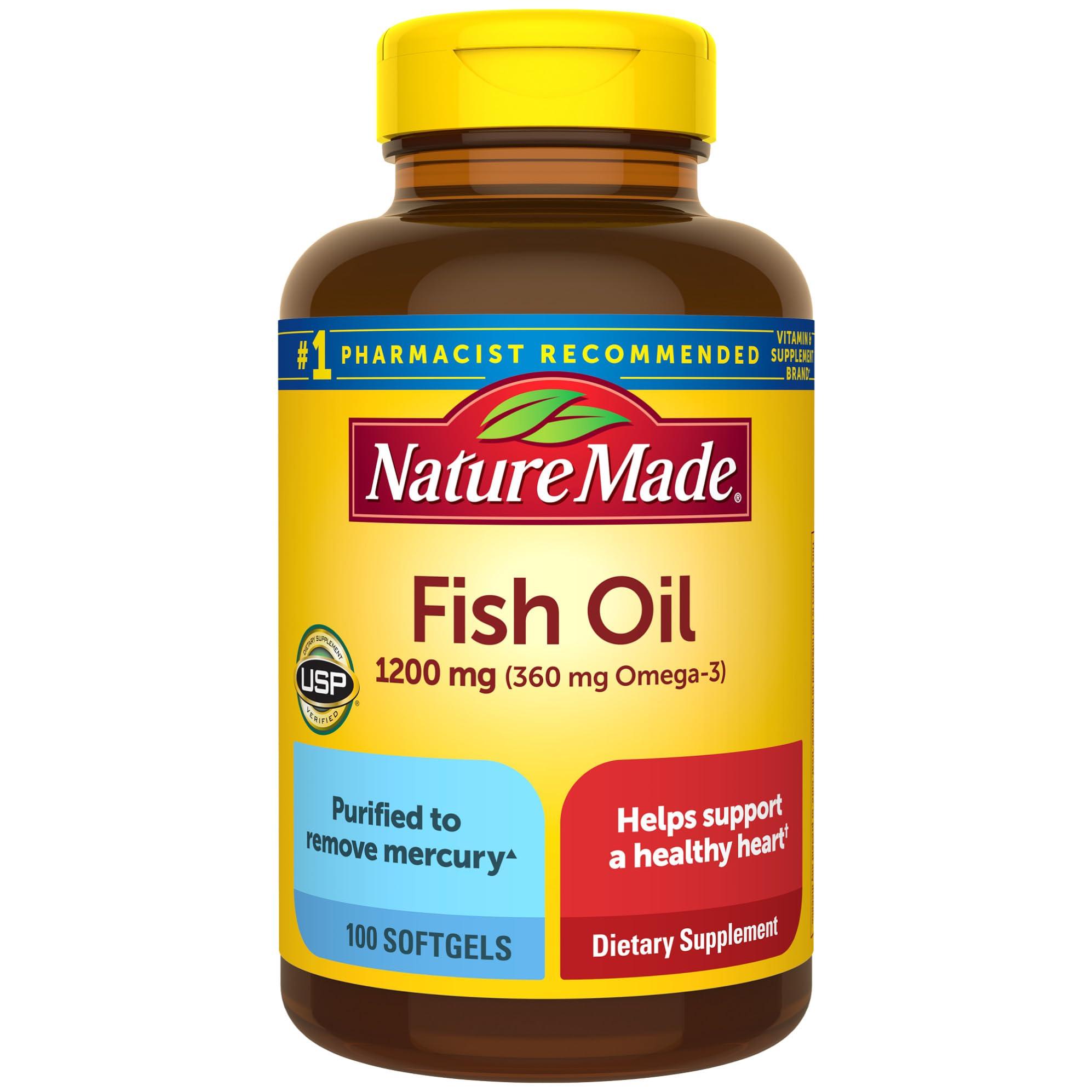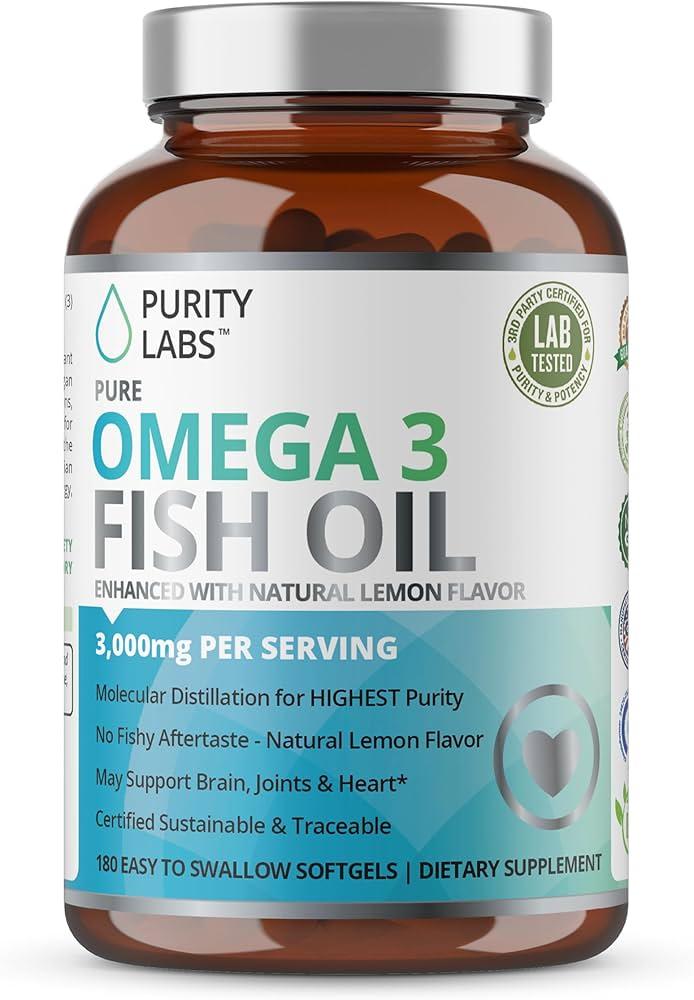In a world increasingly attuned to teh rhythms of health and wellness, the role of nutrition in heart care has never been more prominent. Among the myriad of dietary choices and supplement options, omega-3 fatty acids stand out as vital players in the quest for cardiovascular well-being. With a growing body of scientific evidence supporting their benefits, these powerful nutrients have captured the attention of both health enthusiasts and researchers alike. as we delve into the landscape of omega-3 supplements, this article aims to spotlight the best options backed by science for promoting heart health. Join us as we explore what the latest research recommends, helping you navigate the sea of supplements and make informed choices for your heart.
Understanding Omega-3 Fatty Acids and Their Role in Heart Health
Omega-3 fatty acids are essential fats that our bodies cannot produce on their own, making them crucial for maintaining overall health. These polyunsaturated fats are primarily found in fish and certain plant sources, and there are three primary types that are notably beneficial: EPA (Eicosapentaenoic Acid), DHA (Docosahexaenoic acid), and ALA (Alpha-linolenic Acid). Research indicates that these fatty acids play a critically important role in heart health by reducing inflammation, lowering triglyceride levels, and improving overall cardiovascular function. Regular consumption of Omega-3s has been associated with a lower risk of heart disease and stroke, demonstrating their importance in a heart-healthy diet.
To harness the benefits of Omega-3 fatty acids, incorporating supplements can be an effective strategy, especially for those who may not consume enough fish or plant-based sources. When considering Omega-3 supplements, itS essential to look for products that contain high concentrations of EPA and DHA, as these are the most potent forms linked to heart health. additionally, pay attention to purity, as some fish oils can contain environmental contaminants. Here are some of the important factors to consider when choosing the best Omega-3 supplements:
- Source: Fish oil from fatty fish such as salmon, mackerel, and sardines.
- Concentration: Higher EPA and DHA levels per serving.
- Certification: Third-party testing for purity and potency.
- Form: Triglyceride form is often better absorbed than ethyl ester form.

Key Scientific findings Supporting Omega-3 Supplementation
Scientific research has consistently highlighted the numerous health benefits associated with omega-3 supplementation, particularly in relation to heart health. A key finding from various studies indicates that omega-3 fatty acids, such as EPA and DHA, play a significant role in reducing triglycerides, a type of fat in the blood that can increase the risk of heart disease. In addition to lowering triglycerides,these fatty acids may also help in reducing blood pressure and improving overall lipid profiles,thereby contributing to cardiovascular well-being. Other evidence suggests that individuals who consume higher amounts of omega-3s experience fewer instances of arrhythmias, or irregular heartbeats, which can lead to heart attacks.
Moreover, several systematic reviews and meta-analyses have reported further compelling outcomes regarding omega-3 supplementation. As a notable example, the incorporation of omega-3s can enhance endothelial function, promoting better blood flow and vascular health. Additionally, the anti-inflammatory properties of omega-3s may help in mitigating chronic inflammation, a known risk factor for heart disease.The following table summarizes some recent findings from major studies on omega-3 supplementation and heart health:
| Study | Key Findings | Sample Size |
|---|---|---|
| Meta-analysis of 15 RCTs | Significant reduction in triglycerides | 4,500 participants |
| EPA and DHA supplementation study | Improved endothelial function | 2,000 participants |
| Inflammation and omega-3s | Decreased markers of chronic inflammation | 3,000 participants |

Top Omega-3 Supplements Recommended by Health Experts
Health experts frequently recommend several high-quality omega-3 supplements that prioritize both efficacy and sustainability. Among these, fish oil remains a perennial favorite, celebrated for it’s rich concentration of EPA and DHA fatty acids, crucial for heart function and overall well-being. Options like Nordic Naturals Ultimate Omega and Viva Naturals Omega-3 Fish Oil stand out for their purity and rigorous third-party testing, ensuring that you’re getting a product free of contaminants. For those preferring plant-based sources,algal oil has gained traction as an excellent alternative,providing DHA without the fish.Products such as Zahler Omega-3 Algal Oil are highly recommended by nutritionists for their enduring production methods and health benefits.
For consumers concerned about the dosage, many experts suggest a daily intake of 250-500 mg of combined EPA and DHA, tailored to individual health needs. To clarify these recommendations, here’s a speedy comparison of some top-rated supplements:
| Supplement | Source | EPA/DHA (mg per Serving) | Sustainability |
|---|---|---|---|
| Nordic Naturals Ultimate Omega | Fish | 1280 | Reputable |
| Viva naturals Omega-3 Fish Oil | Fish | 2200 | High |
| Zahler Omega-3 Algal Oil | Algal | 700 | Eco-Friendly |
Incorporating these supplements can greatly enhance heart health, but it’s always essential to consult with a healthcare provider before starting any new regimen.Staying informed about the source and extraction methods of omega-3s will also ensure you are making a choice that aligns with your health goals and environmental values.

Guidelines for Choosing the Right Omega-3 supplement for You
When selecting the perfect Omega-3 supplement, consider the source from which the omega fatty acids are derived. Common sources include fish oil, krill oil, and algae oil. Each source has its own benefits: fish oil is rich in EPA and DHA, essential for heart health; krill oil may have better absorption due to its unique structure; while algae oil is a great plant-based option, ideal for vegetarians and vegans. Focus on supplements that provide high concentrations of EPA and DHA, as these are the most researched fatty acids linked to cardiovascular benefits.
Pay attention to purity and sustainability when choosing an omega supplement. Look for products third-party tested for contaminants such as mercury and PCBs, and certifications from organizations like the Marine Stewardship Council (MSC) to ensure sustainable sourcing practices. Furthermore, consider the form of omega-3: triglyceride form is generally more bioavailable than ethyl ester form. To help you make a choice, here is a quick comparison of some popular omega-3 sources:
| Source | Type | Key Benefits |
|---|---|---|
| fish Oil | EPA & DHA | Supports heart health and cognitive function |
| Krill Oil | EPA & DHA | Better absorption, antioxidant properties |
| Algae Oil | DHA (and sometimes EPA) | Vegan-friendly, sustainable option |
Concluding Remarks
the journey through the realm of Omega-3 supplements for heart health reveals a landscape rich with scientific insight and diverse options.As we’ve explored, not all Omega-3 sources are created equal—each brings its unique benefits, whether derived from fish oil, algae, or plant-based alternatives. Choosing the right supplement is not just about following trends; it’s about aligning with your individual health needs and preferences.
by prioritizing high-quality products backed by research, you can harness the potent power of Omega-3s to support your cardiovascular well-being. Remember, while supplements can play a significant role, they are most effective when integrated into a balanced lifestyle that includes a nutritious diet and regular physical activity.
With the knowledge gained from this exploration, you are now equipped to make informed decisions. The path to heart health is within reach, and with every thoughtfully chosen Omega-3 supplement, you take a step closer to a healthier, more vibrant you. Here’s to your well-being—may it thrive with the wisdom of nature’s finest offerings.




